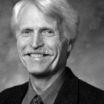(Press-News.org) Malawian villagers have found an unlikely platform to expose injustice and abuse of power and bring their leaders to task, according to research funded by the Economic and Social Research Council (ESRC). Malawi's public radio station broadcasts are providing an alternative programme of news stories. The programme features contributions by ordinary Malawians, highlighting their everyday experiences of abuse and violation.
In a country where radio is the main form of mass media, the daily programme broadcast in Chichewa, the language spoken by most Malawians, has become a veritable household name despite an increasing range of entertainment offered by private and religious radio stations.
The Malawi Broadcasting Corporation (MBC) launched Nkhani Zam'maboma (News from the Districts) to broadcast success stories about local development but the editors soon realised that most of the stories they received were actually complaints about the behaviour of village headmen, employers, healers and others in authority. This was in sharp contrast to what the state-sponsored stories told.
Dr Harri Englund from the University of Cambridge found that witchcraft features in many of the news stories and is one of the ways of talking about abuses of power. For example, stories suggesting that prominent people may be using magic to steal money, property or to cause misfortune or even death for their own benefit are used to highlight greedy and corrupt behaviour. Although no direct accusations are made, listeners can easily work out who is being targeted by the story and what they have done.
Dr Englund found that rather than openly challenging those in authority in the way that Non-governmental organisations (NGOs) do, the stories highlighted injustice in innovative and subtle ways and served to remind those in power of their social and economic obligations to impoverished Malawians. "During my fieldwork, the villagers I spoke to kept telling me that I should listen to this radio programme if I wanted to know what really mattered to them", Dr Englund explained.
Surprisingly, the stories never mention ufulu wachibadwidwe, the 'birth freedom' that has become the standard Chichewa translation for human rights. When asked why it was not used, the programme's editors explained that this term belonged to the NGOs. "Although some aspects of the work done by human rights activists are exciting and have made a difference, their focus is on political liberties and individual freedom while for many ordinary Malawians the main problem is poverty and hunger," Dr Englund continued.
By providing an unprecedented outlet for Malawians to air their grievances, Nkhani Zam'maboma has become an institution in its own right. In contrast, Dr Englund argues that the narrow-minded focus and confrontational approach of human rights activists has made the concept of human rights much less relevant and appealing.
"Ordinary Malawians think that human rights are only about what they see as quite frivolous freedoms. But they can't eat freedom so they are not very taken with this sort of human rights talk anymore" he said. NGOs working in Malawi may have to consider different ways of fighting injustices and promoting human rights in order to gain support and drive from those people they are trying to help.
###
FOR FURTHER INFORMATION, CONTACT:
Dr Harri Englund (Tel: 01223 763962, email: hme25@cam.ac.uk)
ESRC Press Office:
Danielle Moore (Tel: 01793 413122, email:danielle.moore@esrc.ac.uk)
Jeanine Woolley (Tel: 01793 413119, email: jeanine.woolley@esrc.ac.uk)
NOTES FOR EDITORS
1. This release is based on the findings from 'Human Rights, African Alternatives, Witchcraft and the Public Sphere' funded by the Economic and Social Research Council and carried out by Dr Harri Englund at the University of Cambridge.
2. Methodology: Dr Englund carried out 18 months of ethnographic fieldwork between 2003 and 2008, based on participant observation, conversations and semi-structured interviews among both the editors and listeners of the radio programme. He also analysed a sample of over 500 stories broadcast on the programme.
3. The Economic and Social Research Council (ESRC) is the UK's largest organisation for funding research on economic and social issues. It supports independent, high quality research which has an impact on business, the public sector and the third sector. The ESRC's total budget for 2011/12 is £203 million. At any one time the ESRC supports over 4,000 researchers and postgraduate students in academic institutions and independent research institutes. More at www.esrc.ac.uk
4. The ESRC confirms the quality of its funded research by evaluating research projects through a process of peer review. This research has been graded as outstanding.
Public radio exposes injustice
2011-08-19
ELSE PRESS RELEASES FROM THIS DATE:
Cancer stem cells made, not born
2011-08-19
In cancer, tumors aren't uniform: they are more like complex societies, each with a unique balance of cancer cell types playing different roles. Understanding this "social structure" of tumors is critical for treatment decisions in the clinic because different cell types may be sensitive to different drugs. A common theory is that tumors are a hierarchical society, in which all cancer cells descend from special self-renewing cancer stem cells. This view predicts that killing the cancer stem cells might suffice to wipe out a cancer.
New findings by scientists at the Broad ...
UCI researchers chart long-shrouded glacial reaches of Antarctica
2011-08-19
Irvine, Calif. — A vast network of previously unmapped glaciers on the move from thousands of miles inland to the Antarctic coast has been charted for the first time by UC Irvine scientists (http://www.ess.uci.edu/). The findings will be critical to tracking future sea rise from climate change.
"This is like seeing a map of all the oceans' currents for the first time. It's a game changer for glaciology," said UCI earth system science professor Eric Rignot, lead author of a paper on the ice flow published online today in Science Express. "We're seeing amazing flows from ...
Molecular meet and greet
2011-08-19
Boston, Mass. (Aug. 19, 2011)—Researchers at Harvard Medical School have discovered that structural elements in the cell play a crucial role in organizing the motion of cell-surface receptors, proteins that enable cells to receive signals from other parts of the organism.
This discovery, published in the Aug. 19 issue of the journal Cell, fills a fundamental gap in the understanding of how cells relate to biochemical signals, including pharmaceuticals, and could have profound implications for drug development and the treatment of cancer and other diseases.
The findings ...
Kidney drugs hampered by high blood phosphate
2011-08-19
Washington, DC (August 18, 2011) — High blood phosphate levels can set chronic kidney disease (CKD) patients on a rapid path to kidney failure, according to a study appearing in an upcoming issue of the Journal of the American Society Nephrology (JASN). To make matters worse, phosphate appears to interfere with the effectiveness of important kidney medications.
The kidneys of patients with CKD cannot efficiently get rid of wastes such as excess phosphate in the blood. As a result, the kidneys become overloaded with phosphate. Carmine Zoccali, MD (CNR-IBIM, Clinical Epidemiology ...
New 'bionic' leg gives amputees a natural gait
2011-08-19
A new lower-limb prosthetic developed at Vanderbilt University allows amputees to walk without the leg-dragging gait characteristic of conventional artificial legs.
The device uses the latest advances in computer, sensor, electric motor and battery technology to give it bionic capabilities: It is the first prosthetic with powered knee and ankle joints that operate in unison. It comes equipped with sensors that monitor its user's motion. It has microprocessors programmed to use this data to predict what the person is trying to do and operate the device in ways that facilitate ...
Robust preschool experience offers lasting effects on language and literacy
2011-08-19
Preschool teachers' use of sophisticated vocabulary and analytic talk about books combined with early support for literacy in the home can predict fourth-grade reading comprehension and word recognition, new research from Vanderbilt University's Peabody College finds.
The findings, published in Child Development and included in a review article in the August 19, 2011 edition of Science, present evidence that there are lasting, complex and mutually reinforcing effects that flow from strong early childhood classrooms.
"We need to take very seriously the importance ...
Parents misled by advocates of single-sex education
2011-08-19
There is no scientific basis for teaching boys and girls separately, according to Lise Eliot from The Chicago Medical School. Her review reveals fundamental flaws in the arguments put forward by proponents of single-sex schools to justify the need of teaching teach boys and girls separately. Eliot shows that neuroscience has identified few reliable differences between boys' and girls' brains relevant to learning or education. Her work is published online in Springer's journal Sex Roles.
The first issue Eliot highlights is that single-sex school advocates often claim differences ...
Treatment with vitamin C dissolves toxic protein aggregates in Alzheimer's disease
2011-08-19
Researchers at Lund University have discovered a new function for vitamin C. Treatment with vitamin C can dissolve the toxic protein aggregates that build up in the brain in Alzheimer's disease. The research findings are now being presented in the Journal of Biological Chemistry.
The brains of people with Alzheimer's disease contain lumps of so-called amyloid plaques which consist of misfolded protein aggregates. They cause nerve cell death in the brain and the first nerves to be attacked are the ones in the brain's memory centre.
"When we treated brain tissue from ...
Are those liquids explosive?
2011-08-19
A team of researchers from the University of the Basque Country (Spain) has developed a method to determine the chemical composition of liquids seized by police and suspected to be explosive. Some of the samples analysed contained substances hazardous to health, such as methanol and boric acid.
Each year police forces seize tonnes of pyrotechnic substances which, in principle, are for indoor firework manufacturing (i.e. flares or those used in artistic or sporting events), but which also may end up in the hands of violent groups and hooligans.
A group of chemists from ...
Revealed: How sticky egg captures sperm
2011-08-19
Researchers have uncovered exactly how a human egg captures an incoming sperm to begin the fertilisation process, in a new study published this week in the journal Science.
The research identifies the sugar molecule that makes the outer coat of the egg 'sticky', which is vital for enabling the sperm and egg to bind together. Researchers across the world have been trying to understand what performs this task for over thirty years.
The scientists behind this study believe their work could help address some of the previously unexplained causes of human infertility and ...


